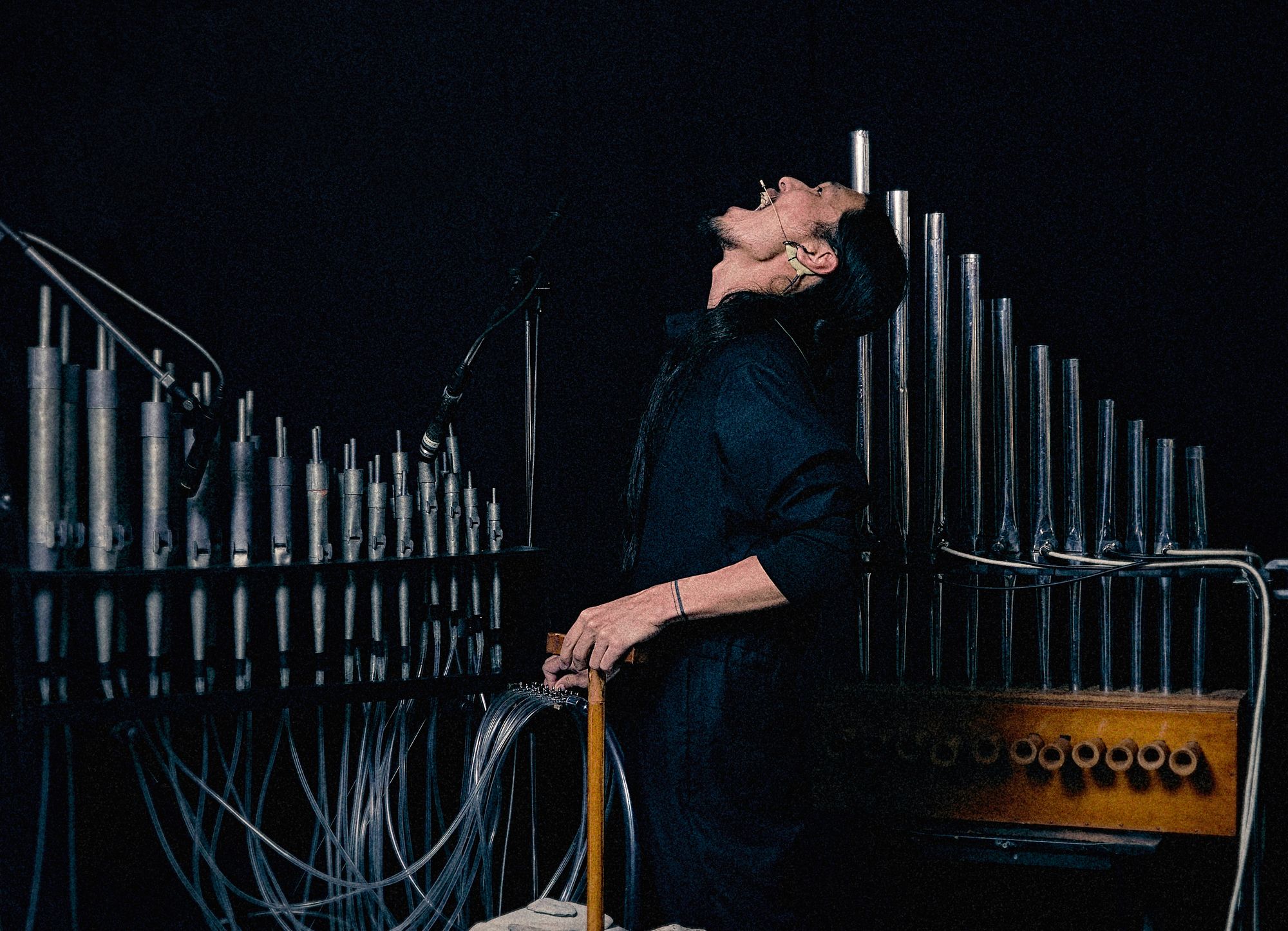
FUJI||||||||||TA and Alex Zhang Hungtai & Leo Chang
Join us in the Pioneer Works Main Hall on October 4th for performances by FUJI||||||||||TA and Alex Zhang Hungtai & Leo Chang.
FUJI||||||||||TA is a sound artist based in Japan. His unique sound art and music is inspired by various natural phenomena that respond to his interest in wanting to hear unheard sounds and noises. In 2009, Fujita hand-fabricated an original instrument—a pipe organ with 11 pipes and no keyboard—created through his own imagination and without any specialized knowledge. Inspired by Japanese “gagaku” music, the instrument was designed to create a landscape, rather than function solely as a musical instrument.
The element of water, using sound synthesized water tanks, has recently been added to Fujita's performance repertoire. The music consists of water sounds from multiple aquariums alongside his pipe organ and his voice.
Alex Zhang Hungtai & Leo Chang
Duo between multi-instrumentalist composers and improvisers, Alex Zhang Hungtai & Leo Chang.
After retiring his project Dirty Beaches, Zhang has been focusing on explorations of improvised music, Free Jazz, film scores and compositions. Zhang predominantly works with saxophone, synthesizers, percussion and piano, furthering his research on ritualistic music of liminality, and its correlation with the unconscious mind.
Leo Chang is a Korean improviser, composer and performer of avant-garde music currently living in Brooklyn. Born in Seoul, Leo lived as an expat in Singapore, Taipei, and Shanghai, and then moved to the United States in 2011. Needing to assimilate to different cultures from a young age, Leo expresses rootlessness and multiplicity within identities through his music, while being skeptical of norms and definitions. Leo traces the origins of his fractured identity-formation to colonial legacies that continue to this day. His art is an act of home-making inspired by various musical and ideological movements that have sought to question power dynamics and imagine freedom within egalitarian possibilities. His primary methods are free improvisation, written text, graphical notation, and electronic processing.